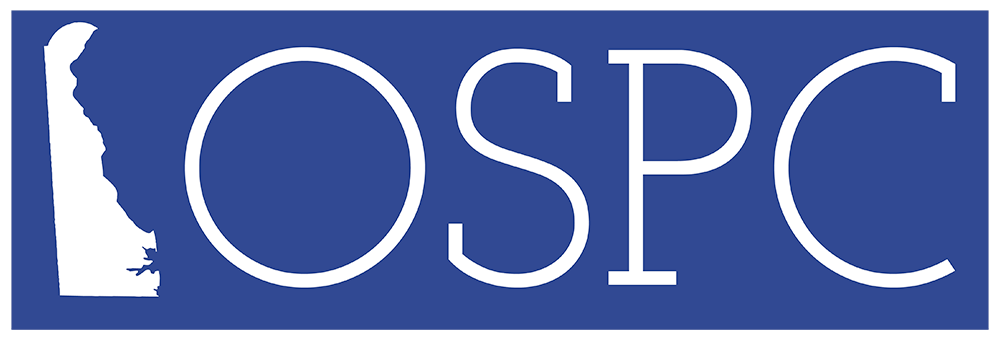Capital Budget Requests
Introduction
The Strategies for State Policies and Spending help State agency operating and capital budget requests, with a goal of making appropriate investments in all areas of Delaware to promote efficient development patterns, protect agriculture and open space, and discourage sprawl. State capital investment decisions influence development patterns, affect the transportation system, and have localized economic impacts. Through the capital budget process, the State can exercise one of its most effective techniques to guide development.
The state's Budget Preparation Guidelines require state agencies making capital funding requests to complete a Land Use Goals Questionnaire for new construction projects, major renovations of existing facilities, or land acquisitions associated with such construction which are requested through the capital improvements process and are not currently being funded.
All state agencies are required to follow the Strategies for State Policies and Spending when considering locations for capital improvement projects.
Land Use Goals Questionnaire
The Land Use Goals Questionnaire must be completed and submitted to the State Budget Office for new construction projects or land acquisitions associated with such construction which are requested through the capital improvements process and are not currently being funded. This questionnaire will be used to:
- Gather information and perform assessments of the potential land use and development implications of a proposed project.
- Address the development goals established by Livable Delaware and augment the project financial information already collected.
A statewide analysis of the questionnaire information will be provided to the Budget Office for consideration along with financial and other policy issues as the Governor's recommended capital budget is being developed.
The Strategy Levels
The Strategies establish how the State will use its resources based on locations within four investment level areas. Maps of the state showing these areas will be available on the Strategies web pages and as geospatial data available for download and use by any interested parties.
Investment Level 1 Areas provide regional and local identity and a sense of place for personal and business activities. Delaware is a collection of 57 incorporated communities, from its largest cities - Wilmington, Newark and Dover - to smaller cities such as Milford, Georgetown, Seaford, Middletown and even to numerous smaller communities throughout the state. There are also many intensely developed areas throughout the state that function in a similar manner. These Investment Level 1 Areas drive Delaware's economic engine.
The state's goals clearly recognize the value of these Investment Level 1 Areas and provide for their continued health and vitality through reinvestment and redevelopment, and through the efficient use and maintenance of existing public and private investments.
In Investment Level 1 Areas, state investments and policies should support and encourage a wide range of uses and densities, promote other transportation options, foster efficient use of existing public and private investments, and enhance community identity and integrity.
Investment Level 2 Areas are diverse and surround many municipalities. They are the most popular portion of Delaware's developed landscape. They serve as transition areas between the Investment Level 1 Areas and the state's more open, less populated areas. These areas are characterized by a limited variety of housing types (predominantly detached single-family dwellings), commercial and office uses serving primarily local residents (examples: food, drugs, video rental, and so forth), and a limited range of entertainment, parks and recreation, cultural and institutional facilities.
Investment Level 2 Areas seem to be built for cars, not people. Their residents are often dependent on automobiles. In such areas, land uses historically are separated into zones of similar intensities and styles, with limited mixing of uses. Innovative developers, architects and land use experts recognize that the historic design of suburban developments could be improved by incorporating a mix of housing types and limited commercial uses as well as interconnecting roads and bikeways between developments. They also recognize that compact development strategies may fit within areas adjacent to existing towns and population centers. These elements, designed with a greater concern for aesthetics and the environment, would revive the feel of the traditional "village," providing a stronger sense of community.
Investment Level 3 Areas are generally portions of county-designated growth zones or development districts that aren't in the Investment Level 1 or 2 designations on the state's Strategy Map. They represent areas that counties believe will eventually develop, because of existing wastewater systems or long-range plans for eventual service by public sewer. In New Castle County these areas generally reflect phases 2 and 3 of the county's adopted waste water facility plan. Although these areas may be primarily used for agriculture today, they are experiencing development pressure, and may not remain predominately rural in the long term.
Investment Level 4 Areas include much of Delaware's rural landscape. Delaware's leading industry today is agriculture, as it was a century ago. The state's open spaces and rural vistas are critical components of the quality of life Delawareans enjoy, as are the small settlements and historic villages reflecting earlier times. Marshlands, wooded areas and a network of waterways support an abundance of wildlife, provide recreation and help define the Delaware scene. Delaware's Investment Level 4 areas are predominantly agricultural. These areas contain agribusiness activities, farm complexes and small settlements. They are typically found at historic crossroads or points of trade, often with rich cultural ties.
Assistance from the Office of State Planning Coordination
Staff from the Office of State Planning Coordination are available, at (302) 739-3090, to assist agencies in completing this questionnaire. For projects located in:
- New Castle County: Samantha Bulkilvish
- Kent County: David Edgell
- Sussex County: Dorothy Morris






